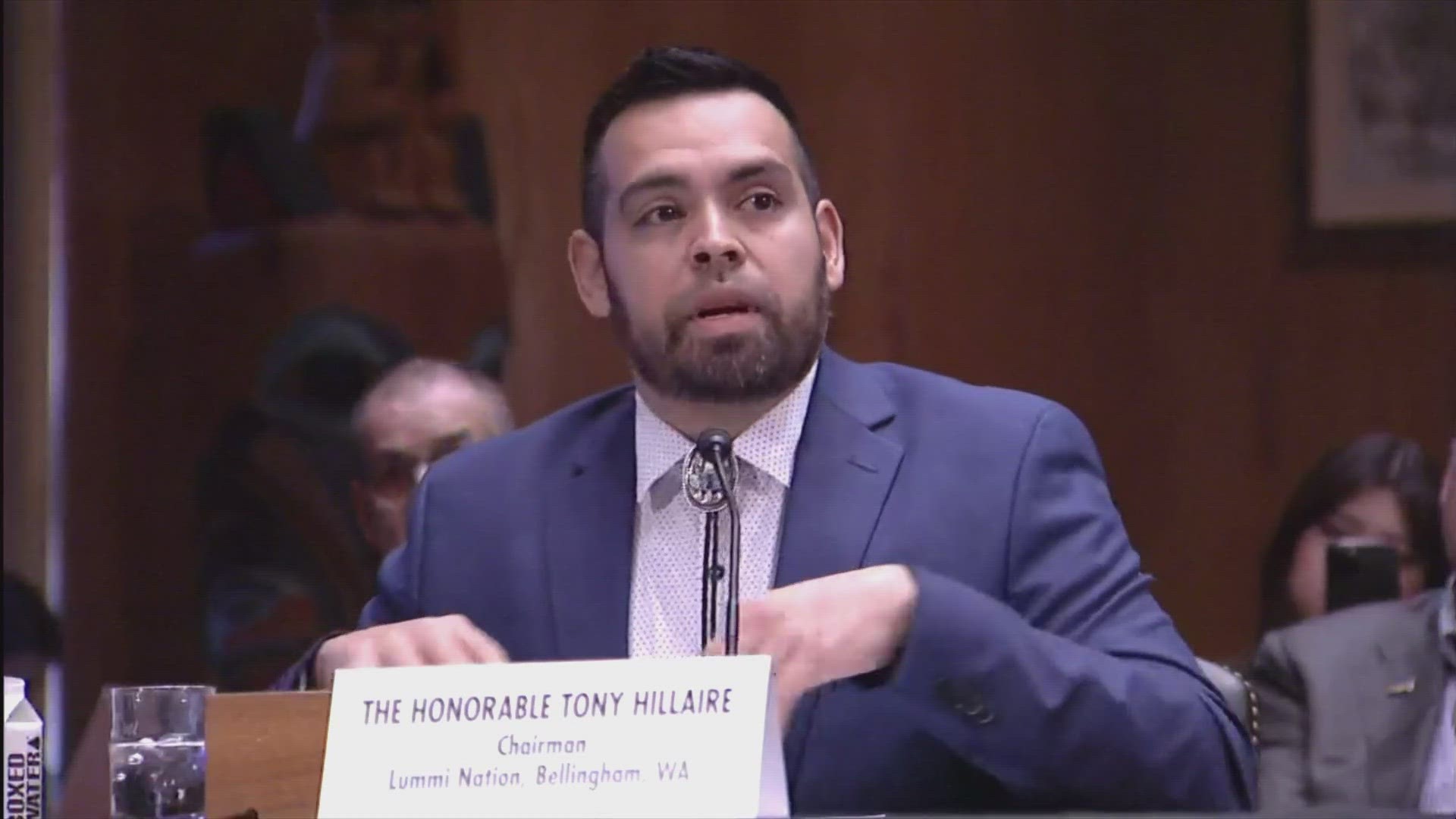WASHINGTON — The chairman of the Lummi Nation gave testimony on the fentanyl crisis before the Senate Committee on Indian Affairs in Washington D.C. Wednesday.
Chairman Tony Hillaire urged senators for more federal funding to help fight the crisis that has been particularly devastating for Washington state's tribal nations.
Last month, Washington Sen. Maria Cantwell, former chair and longtime member of the committee, requested the hearing to highlight the ongoing crisis and to make sure tribal voices were heard.
“We've talked to tribal leaders in Spokane, Colville, Yakama, Cowlitz, Jamestown, Puyallup, Tulalip, and many people about how their particular communities are being impacted,” Cantwell said. “What we know is we must increase treatment and recovery capacity. As one doctor told me: ‘We should have access to recovery be as easy as access to the drug.’ And at this point, it's not.”
During the hearing, Cantwell called attention to the Tribal Law Enforcement Act, which would increase federal law enforcement staffing on tribal land.
“What I feel and hear, particularly, Mr. Chairman, from the Lummi, is that without the adequate tribal law enforcement resources, I almost feel like Indian Country is being targeted. That people know that you don't have the law enforcement, that you don't have the capabilities, and that's where people are setting up shop,” Cantwell said.
Hillaire testified the Lummi Nation wants to build a detox facility but that it still needs more federal funding.
“We are learning the need for better outreach, better treatment services. The more drugs we get off the street, the more we disrupt the market of drugs,” Hillaire said. “Our need for a detox facility is an immediate need right now. The severity of withdrawals to fentanyl is really concerning. And right now, we have plans to build a detox facility, but through the bureaucracy and through the lack of funding resources it's been really challenging."
His testimony also spoke on recent overdose deaths the community is still grieving.
"We are here on behalf of the grieving grandmothers and mothers who are burying their children to drug overdose. And it's becoming way too normalized, and just yesterday we had a funeral for a 26-year-old Lummi woman who passed away from a drug overdose, leaving behind two children that will grow up now without a mother," Hillaire said.
In September, five people died in just three days in the Lummi Nation near Bellingham, all from fentanyl overdoses.
“When we had those deaths and when I was talking to Sen. Cantwell, we responded immediately,” Hillaire said. “At Lummi Nation, we declared a state of emergency. We implemented checkpoints to limit the number of drugs that were coming onto our reservation. We got canine units. Sen. Cantwell helped us get FBI agents who helped get drugs off the street.”
The Centers for Disease Control and Prevention reported last year that American Indians and Alaska Natives had the highest drug overdose rates in 2020 and 2021.
In 2022, more American Indians died from synthetic opioid overdoses than any other ethnicity in Washington state, despite only making up 2% of the population. In King County, they died at more than nine times the rate as white residents.

